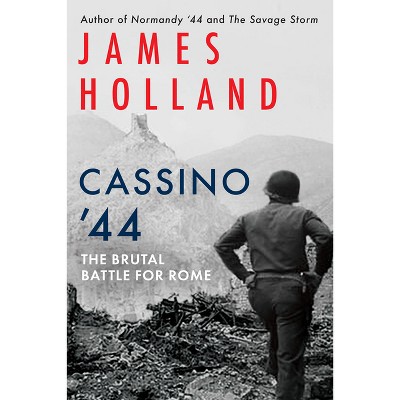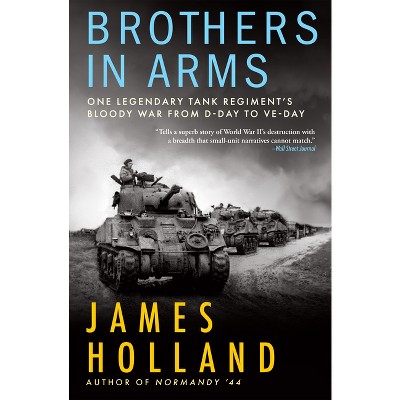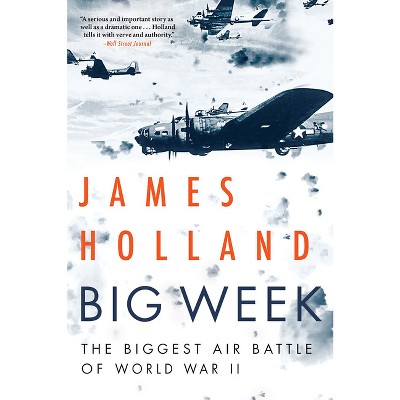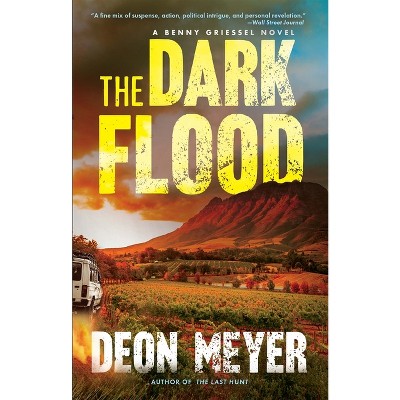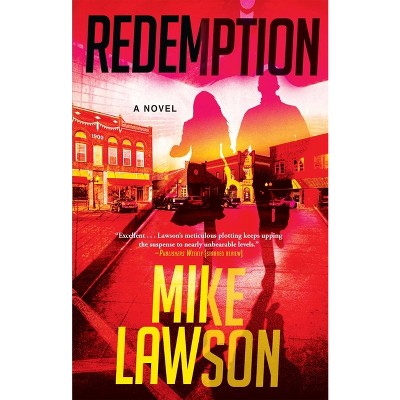Sponsored

The Visionaries - by James Holland (Hardcover)
Pre-order
Sponsored
About this item
Highlights
- From the pre-eminent WWII historian, an ardent chronicle of the unprecedented and far-sighted U.S. postwar decision to aid its enemies as well as its allies via the Marshall Plan, which led to eight decades of peace and prosperity in the West that could be upended in an "America First" environmentOn March 12, 1947, less than two years after the end of World War II, President Harry S. Truman gave a seminal speech before Congress, in response to a European crisis: Greece was facing economic collapse and encroaching Soviet ambition, and Truman felt the U.S. had to give financial aid to a free people resisting attempted subjugation, which, he emphasized, would promote "economic stability and orderly political processes.
- About the Author: James Holland, one of WWII's finest historians, is the co-author of Victory '45, and author of Cassino '44, The Savage Storm, Brothers in Arms, Sicily '43, Normandy '44, Big Week, The Rise of Germany and The Allies Strike Back in The War in the West trilogy, Burma '44, and Dam Busters.
- 240 Pages
- History, Military
Description
Book Synopsis
From the pre-eminent WWII historian, an ardent chronicle of the unprecedented and far-sighted U.S. postwar decision to aid its enemies as well as its allies via the Marshall Plan, which led to eight decades of peace and prosperity in the West that could be upended in an "America First" environment
On March 12, 1947, less than two years after the end of World War II, President Harry S. Truman gave a seminal speech before Congress, in response to a European crisis: Greece was facing economic collapse and encroaching Soviet ambition, and Truman felt the U.S. had to give financial aid to a free people resisting attempted subjugation, which, he emphasized, would promote "economic stability and orderly political processes."
The U.S. was the richest nation in the world, but Truman saw that shared prosperity among the democracies would make them politically more stable and long-term peace much more likely. His momentous proposition that the U.S. bail out Greece led in turn to the unprecedented and radical Marshall Plan itself: the decision to aid not only U.S. allies but--for the first time in history--our former enemies as they all rebuilt from the ruins of the calamitous war. Indeed, with this aid Germany and Japan became economic powerhouses and, with most of Europe, staunch allies of the U.S.--and almost eighty years on the benefits of this extraordinary decision are still being felt.
James Holland's deep knowledge of WWII gives him unique insight and appreciation for its historic aftermath. In tight and vivid prose, The Visionaries chronicles the prelude to the Marshall Plan--from Franklin Roosevelt's historic "four freedoms" speech and "Good Neighbor Policy" towards Central and South America to the landmark Bretton Woods Conference of July 1944, which established the International Monetary Fund and World Bank, pillars of world stability. But it was Truman who pushed for the Marshall Plan, which in 1948 kickstarted the fastest period of growth in European history. Its low-tariff environment encouraged trade and brought prosperity and longstanding peace throughout most of Europe and the Americas. However, Holland warns that we in the West have become complacent, less willing to safeguard the freedoms that extended prosperity has allowed; and he makes clear the remarkably far-sighted decisions made in the wake of WWII stand in stark contrast to our transactional approach to the world today.
Review Quotes
Praise for James Holland:
"Finely detailed . . . Not simply targeted to WWII enthusiasts, Victory '45 illustrates for those with a broader historical interest the myriad challenges in bringing to heel the dogs of war."--Douglass K. Daniel, Associated Press
"Original, seminal, unique, ground-breaking, and deftly crafted . . . welcome, informative, exceptional, and unreservedly recommended."--James Cox, Midwest Book Review, on Victory '45
"Detail and scope are the twin strengths of Normandy '44 . . . Mr. Holland effectively balances human drama with the science of war as the Allies knew it."--Jonathan W. Jordan, Wall Street Journal
"Academic histories are all very well, but at times it is a pleasure to sit back and wallow in an old-school military tale of flinty-eyed men doing battle. That is what James Holland, a seasoned craftsman, offers in Sicily '43."--Thomas E. Ricks, New York Times Book Review
"This hefty, scrupulously balanced history of the Allied invasion of northern France goes beyond some of the well-known events of D-Day, thanks to Holland's meticulous research and clear-eyed view of the big picture . . . An excellent and engrossing new look at the Normandy invasion."--Publishers Weekly (starred review), on Normandy '44
"Holland is a marvelous writer producing a fascinating account, a must read for historians, and anyone interested in World War II."--D. Colt Denfeld, Journal of America's Military Past, on Cassino '44
"Holland's great skill lies in bringing these warriors back to life with vivid prose. He's an enormously prolific historian of the war, but each book he produces is constructed with great care and emotional commitment . . . Holland is obsessed with war, but fortunately does not seem to love it. He recognizes its beauty, but also its vileness."--Gerard DeGroot, Times (UK) on Sicily '43
"Highly detailed . . . The interplay of personal stories with the broader strategic picture makes this book especially illuminating . . . A fascinating must-read for World War II aficionados."--Kirkus Reviews (starred review), on Big Week
"James Holland's The War in the West is set fair to become one of the truly great multivolume histories of the Second World War."--Andrew Roberts, New York Times-bestselling author of The Storm of War: A New History of the Second World War and Napoleon: A Life
"A fascinating story of how the fortunes of war changed in obvious--and particularly not so obvious--ways."--Col. Eric M. Walters, Military Review on The Allies Strike Back
"Holland puts the case for Allied technological and military skills as a vital factor in turning the war's tide . . . Ranks as a towering work of historical research and writing."--BBC History Magazine on The Allies Strike Back
"This is narrative history as intimate, intricate tapestry . . . Mr. Holland's success is built in part on an engaging writing style and in part on a genuinely fresh approach to events that have been so often--and apparently definitively--recounted . . . Exceptional . . . Epic."--Wall Street Journal on The Rise of Germany
"Impeccably researched and superbly written . . . Holland's fascinating saga offers a mixture of captivating new research and well-considered revisionism."--Guardian on The Rise of Germany
About the Author
James Holland, one of WWII's finest historians, is the co-author of Victory '45, and author of Cassino '44, The Savage Storm, Brothers in Arms, Sicily '43, Normandy '44, Big Week, The Rise of Germany and The Allies Strike Back in The War in the West trilogy, Burma '44, and Dam Busters. He has written and presented the BAFTA shortlisted documentaries Battle of Britain and Dam Busters for the BBC, and his WWII podcast, "We Have Ways of Making You Talk," now has millions of listeners. He is the founder of the annual Chalke Valley History Festival.
Shipping details
Return details
Trending Non-Fiction






